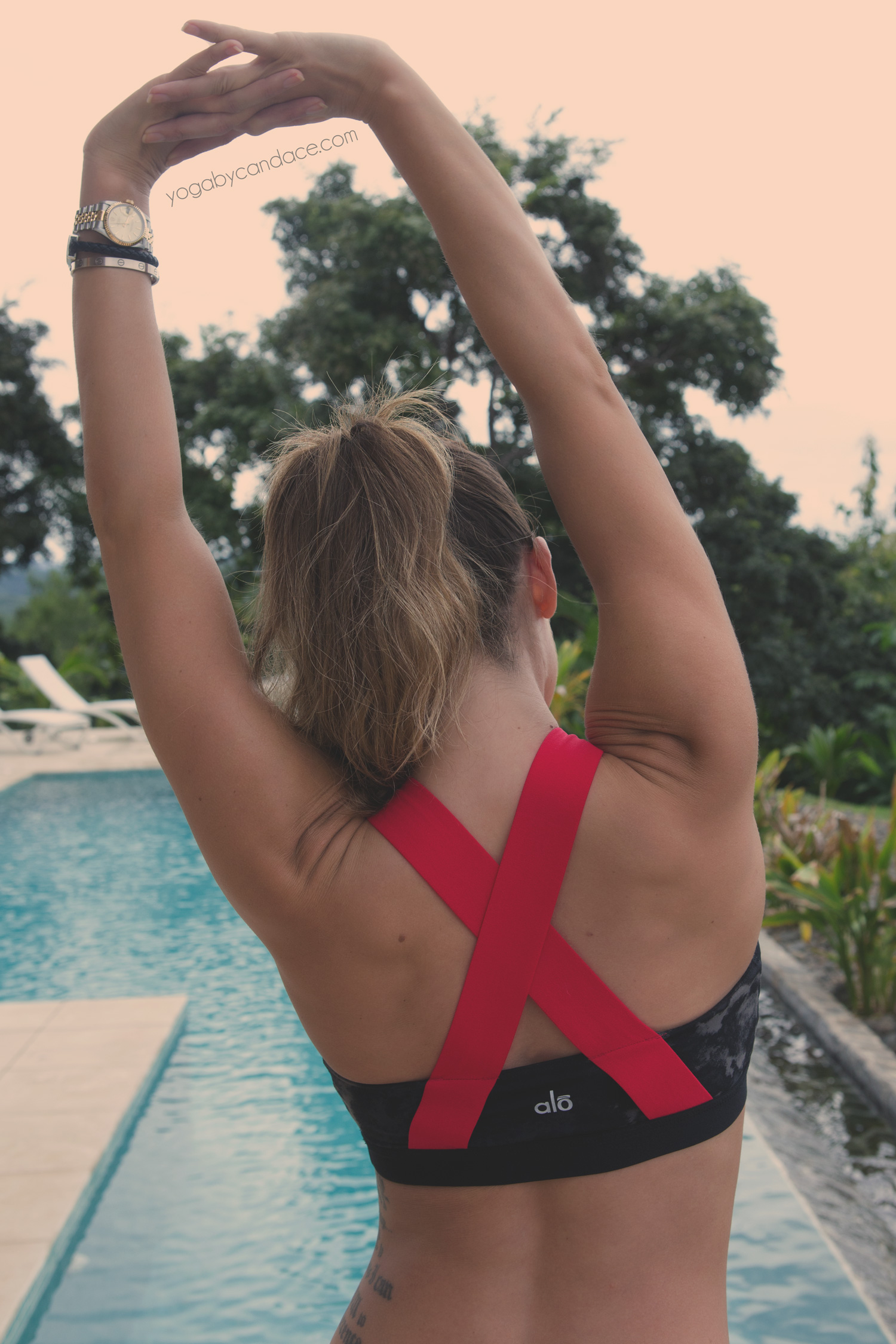Confessions of a yoga teacher is a series about my experiences as an instructor. Sometimes the posts are funny, sometimes they're more serious. The idea is to spark conversation about teaching yoga within the yoga community here in the comments below or on the YBC Yoga Forum. Please feel free to share your experiences!
A few weeks ago I attended the Yoga Journal Conference in Miami, where I took a class by Eric Paskel, an unorthodox yoga instructor who taught a class called Yoga Rocks: The Doors, a loud, in your face, kick your asana kind of class. The sequencing was pretty basic, the music was pretty great (if you like The Doors), and the attitude of the teacher was refreshing (he may or may not have asked us to go from warrior 2 to reverse warrior 2 with the middle finger raised at all the fears and self doubts we had). It was a class filled with laughs and dance moves, and yeah, it was a little cheesy at parts, but it was also inspiring.
Throughout the class, Eric kept saying that if we didn't like the class, it wasn't that it was a bad class. It was that our ego was getting in the way. He said, 'Who said a yoga class has to be this mystical fairy land with bonsai trees and kirtan music? Is it still yoga if it gets away from its traditional form?'
There were parts of that I disagreed with (mostly because I hold firm in my thought that a yoga teacher should properly prepare classes ahead of time and stick to a schedule otherwise it is, by my definition, a bad yoga class), but other than that, I found myself nodding along.
Slow yoga in a fast world
Wearing: Lululemon top, Kira Grace pants (review).
It hit particularly close to home for me because a few days prior, I had been on the phone with someone, telling them that I'd be teaching a couple workshops in Jacksonville Beach while I was in town. I went mentioned the two classes I had planned: Slow yoga in a fast world - a hips sequence with guided meditation at the end, and a Flow & Glow in the Dark Yoga Class. The second I mentioned the glow in the dark class, the person I was talking with sort of snorted and said, "Oh that's dumb."
At the time, I laughed too, but, confession: deep down it stung a bit. I felt the urge to defend the class, but I said nothing because this was a person whose experience with yoga was firmly rooted in the traditional and I didn't feel like she would understand.
I got off the phone and reassured myself this was a good workshop. It was different, which I thought was a) cool, b) would attract people (because I have to pay the bills somehow), but more than that, I thought it would introduce a playful side to people's practices.
Glow in the dark yoga class
Using: LumiStick glowsticks
And that's not just me being like, 'Oh hey, I think we should all just lighten up and get our glow on.' Rather, it comes from a place of knowing that in my personal experience, when I am less focused on goals and am more lighthearted and playful, I'm able to go deeper in my practice, so I wanted that for others as well. Much like the blindfolded yoga workshop I offer, the glow in the dark yoga workshop would be a chance to go deeper within. With the lights flicked off and the glow sticks bright, the tendency to check out those around us (and compare ourselves to others) would fade, allowing the focus to be more on our breath, our movement and the energy of the room.
That one little comment, though, sort of stuck with me right up until a week later, when I taught the class. I thought long and hard about what I would say, and how I would walk people through the flow. I spent extra time on the planning to ensure I wouldn't fail, and I practiced how the sequence would feel on m body and knew ways I'd tweak it if I had beginners in the class. Overall, I just desperately wanted to deliver the kind of class I had in my mind - something nourishing for the soul that would leave people feeling good.
It wound up going really well, and served as a reminder to myself that there will always be people with opinions that vary from my own and the trick is to listen to constructive criticism in order to improve, but to also trust what feels right and makes sense for me personally as a yoga instructor.
At our Costa Rica yoga retreat in November, 2014.
It's a risk, to develop these types of workshops, much like it's a risk to start offering yoga retreats. What if no one signs up? What if I can't even cover my travel costs? What if it's a total failure? I'm not going to sit here and lie to you and tell you that I don't have those fears myself. I certainly do. But I asses them, assess the quality of my class plan and my ability to deliver the class I have in mind, and then decide whether or not I should go for it. And if I decide to go for it, I go 100%. Because if you don't believe in yourself, who will?
Let's talk Do you think non-traditional yoga is still yoga? Are you a teacher? Have you ever dealt with something similar?




